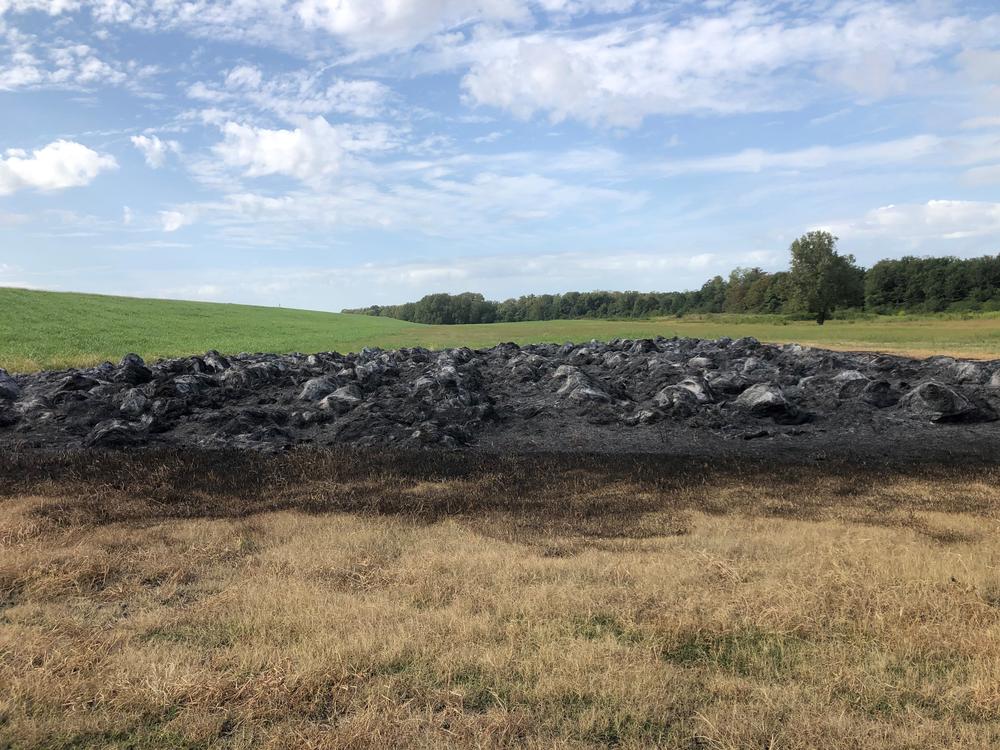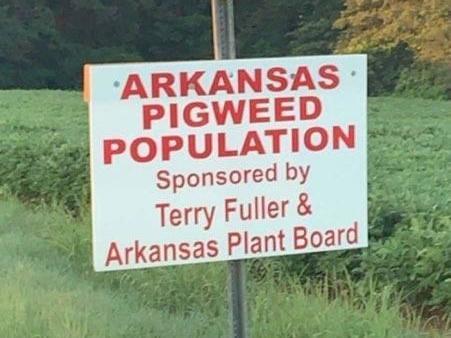Section Branding
Header Content
In Arkansas, Backlash Against Pesticide Regulation Gets Personal
Primary Content
Twice in the past two months, vandals have struck Terry Fuller's farm, destroying tractor engines and burning stacks of hay. Each attack came immediately after Fuller appeared before Arkansas's state legislature on behalf of a state agency that's investigating farmers suspected of illegally using a herbicide called dicamba. Fuller doesn't think it's a coincidence.
Fuller chairs a board of citizen-regulators called the Arkansas State Plant Board. It has imposed some of the country's tightest restrictions on the use of dicamba, a chemical that's provoked intense conflict - including one murder - in farming communities from Mississippi to Minnesota. Some farmers call it an essential weed-killing tool. Others consider it an intolerable agent of destruction, because it tends to evaporate from fields where it's sprayed and move with the wind, damaging other crops and wild vegetation.
Earlier this year, citing dicamba's widespread damage, a court revoked the Environmental Protection Agency's approval of the most important uses of dicamba. But the company Bayer, which created popular varieties of soybeans and cotton that are genetically modified to tolerate dicamba, is asking the EPA to put it back on the market next year.
Judging by recent events in Arkansas, the battles over dicamba are not dying down. The Arkansas Plant Board has sent inspectors to farmers' fields and found residues of dicamba sprayed later in the summer than the board allows. The board is asking dozens of farmers to pay a total of almost $1.5 million — and that number is still growing — to settle charges of illegal use. Meanwhile, Terry Fuller is feeling the backlash. Signs, posted along country roads, blame the plant board and him personally for weed-infested fields.
On the night of August 17, unknown vandals located two of Fuller's tractors, parked 12 miles apart, on a levee beside the St. Francis River. According to Fuller, they fed plastic into the hot engines, destroying them. Fuller says it will cost $60,000 to replace the engines, although insurance will cover most of the cost.
A month later, hours after Fuller testified again before the state legislature, someone set fire to more than 300 bales of Fuller's hay, stacked near that same levee, causing $18,000 in damage.
"I suspect this is retaliation or, at the minimum, increased aggression towards me triggered by my service to the ASPB," Fuller wrote to his fellow board members. "I will not yield to those who believe they can bully me into silence by acts of vandalism or character defamation."
David Kinney, the chief deputy sheriff of Lee County, Arkansas, tells NPR that his office is currently investigating the incidents.
Copyright 2020 NPR. To see more, visit https://www.npr.org.


